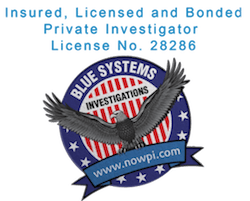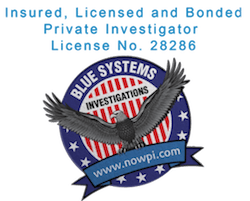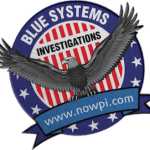Latest Blog Posts
August 15, 2019
August 15, 2019
August 15, 2019
Follow us on Facebook
Certification
CA Private Investigator
License No. 28286
PI Services
Locations Served
Client Intake Forms
Types of Background Checks: A Comprehensive Guide
Understanding Background Check Options
Background checks have become essential tools for risk management in today's business environment. Whether you're screening potential employees, vetting business partners, or investigating concerns in your personal life, selecting the right type of background check is crucial for obtaining relevant information while maintaining legal compliance.
Different situations demand different levels of scrutiny. A basic background check might suffice for entry-level positions, while executive roles or positions with fiduciary responsibilities typically require more comprehensive investigations. Understanding these distinctions helps you invest resources appropriately while obtaining the necessary insights for informed decision-making.
Criminal Background Checks
Criminal background checks represent the most commonly requested screening type, examining federal, state, and county records to identify past convictions, pending cases, and in some jurisdictions, arrest records. These checks form the foundation of most pre-employment screening programs.
A standard criminal background check typically searches:
- County criminal court records (usually in counties of residence)
- State criminal repositories
- Federal criminal records
- National criminal databases
- Sex offender registries
- Global watchlists and sanctions databases
The Fair Credit Reporting Act (FCRA) places restrictions on how criminal record information can be used in employment decisions. According to the Society for Human Resource Management, employers must consider factors such as "the nature and gravity of the offense, the time elapsed since the offense, and the nature of the job sought."
It's worth noting that the completeness of criminal record searches depends significantly on the jurisdictions covered. While some states maintain comprehensive databases, others have fragmented record systems requiring individual county-level searches for complete information.
Employment Verification
Employment verification confirms a candidate's work history claims, helping organizations identify potential resume fraud while gaining insights into professional background. Studies from the National Association of Background Screeners indicate that approximately 40% of resumes contain some form of misrepresentation regarding employment history.2
Standard employment verification typically confirms:
- Company names and locations
- Dates of employment
- Positions and titles held
- Reason for departure (when available)
- Eligibility for rehire status
More comprehensive employment verification may also explore performance information, though many organizations limit such disclosures due to legal concerns. For executive-level positions, deeper investigations might examine leadership effectiveness, management style, and specific accomplishments.
Education Verification
Education verification authenticates academic credentials, confirming degrees, diplomas, certifications, and attendance dates. This verification helps organizations validate that candidates possess the educational qualifications necessary for specific positions.
Background screening firms typically contact institutions directly or utilize authorized verification services like the National Student Clearinghouse. According to research from HireRight, approximately 25% of resumes contain misrepresentations related to educational credentials, underscoring the importance of verification.3
When conducting education verification, screening providers typically confirm:
- Institution name and accreditation status
- Dates of attendance
- Degrees, diplomas, or certificates awarded
- Major fields of study
- Graduation status and dates
- Academic honors (when relevant)
International education verification requires specialized expertise due to variations in educational systems, record-keeping practices, and privacy regulations across different countries.
Financial Background Checks
Financial background checks examine an individual's credit history and financial stability. These screenings are particularly relevant for positions involving financial responsibilities, access to company assets, or fiduciary obligations.
Standard financial background checks typically review:
- Credit payment history
- Outstanding debts and obligations
- Bankruptcy filings
- Collections accounts
- Public records (tax liens, civil judgments)
- Credit utilization patterns
It's important to note that many jurisdictions have enacted laws restricting the use of credit information in employment decisions. The Consumer Financial Protection Bureau provides guidance on complying with these regulations while conducting necessary financial due diligence.
Professional License Verification
Professional license verification confirms that individuals possess valid, current credentials required for their field. This verification is particularly critical in regulated industries such as healthcare, legal services, financial services, and engineering.
License verification typically confirms:
- License type and number
- Issuing authority and jurisdiction
- Original issue date
- Current status (active, expired, suspended)
- Expiration date
- Disciplinary actions or restrictions
For positions requiring specialized credentials, license verification provides essential confirmation that candidates are legally qualified to perform specific duties. This screening component also helps organizations maintain regulatory compliance and reduce potential liability.
Driving Record Checks
Motor vehicle record (MVR) checks examine driving history, revealing license status, violations, accidents, and suspensions. These checks are essential for positions involving driving responsibilities, fleet management, or company vehicle operation.
Standard MVR checks typically reveal:
- License status and classifications
- Issue and expiration dates
- Traffic violations and convictions
- Accident history
- Suspensions or revocations
- DUI/DWI convictions
According to the National Highway Traffic Safety Administration, employers who regularly check driving records can significantly reduce accident rates and liability exposure.
International Background Checks
International background checks verify information across different countries, addressing the increasing globalization of the workforce. These complex screenings require specialized expertise due to varying legal systems, privacy regulations, and record accessibility.
International background investigations may include:
- Criminal record searches in relevant countries
- Global watchlist and sanctions checks
- International employment verification
- Foreign education credential assessment
- International credit checks (where legally permissible)
- Foreign language document translation and verification
The most effective international screening programs balance thoroughness with cultural sensitivity, navigating complex privacy regulations like the European Union's General Data Protection Regulation (GDPR).
Social Media Screening
Social media screening examines publicly available online content to identify potential concerns related to professional conduct, behavior patterns, or statements contradicting application claims. This relatively new screening component requires careful implementation to avoid discrimination concerns.
Properly conducted social media screenings focus on:
- Professional conduct concerns
- Potentially violent or threatening content
- Discriminatory statements or behavior
- Confidential information disclosure
- Content contradicting resume claims
According to CareerBuilder research, approximately 70% of employers use social media to screen candidates before hiring. However, legal experts at the Society for Human Resource Management recommend using specialized screening providers rather than conducting informal searches to minimize legal risks.
Healthcare Sanctions Checks
Healthcare sanctions checks identify individuals excluded from participation in federal healthcare programs due to fraud, patient abuse, licensing issues, or other violations. These specialized screenings are mandatory for healthcare organizations receiving federal funding.
These checks typically search:
- Office of Inspector General (OIG) exclusion list
- General Services Administration (GSA) excluded parties list
- State Medicaid exclusion lists
- Food and Drug Administration (FDA) debarment list
- Drug Enforcement Administration (DEA) registrations
Healthcare organizations face significant penalties for employing excluded individuals, making these screenings essential for regulatory compliance and risk management in medical settings.
Choosing the Right Background Check Level
Selecting appropriate background screening depends on various factors including position responsibilities, industry requirements, regulatory mandates, and organizational risk tolerance. A risk-based approach tailors verification depth to specific needs rather than applying one-size-fits-all screening.
Conservative industries with strict regulation (financial services, healthcare, education) typically require more comprehensive background checks, while retail or service industries might implement more focused screening programs. According to background screening statistics from PwC's Annual HR Technology Survey, organizations increasingly utilize tiered screening approaches based on position level and responsibilities. 7
When developing a background screening program, consider:
- Industry standards and regulatory requirements
- Position-specific risk factors
- Access to sensitive information or vulnerable populations
- Financial responsibilities and fiduciary obligations
- Workplace safety considerations
- Customer interaction levels
- Reputation and brand protection needs
Legal Considerations for Background Checks
Background checks operate within a complex legal landscape governing what information can be collected, how it can be used, and what procedures must be followed. Understanding these legal parameters is essential for maintaining compliance while obtaining necessary information.
Key legal considerations include:
- Fair Credit Reporting Act (FCRA) requirements
- Equal Employment Opportunity Commission (EEOC) guidelines
- Ban-the-box and fair chance hiring laws
- State-specific background check restrictions
- Industry-specific regulatory requirements
- International privacy regulations
Working with qualified background screening providers helps navigate this complex legal terrain while maintaining necessary compliance documentation. The Professional Background Screening Association provides resources for developing legally compliant screening programs.
Conclusion
Background checks have evolved from simple criminal record searches to sophisticated, multi-faceted investigations addressing diverse risk factors. By understanding the various types of background checks available, organizations can develop screening programs that effectively balance risk management with legal compliance.
The most effective background screening programs utilize risk-based approaches, applying appropriate verification depth based on position requirements rather than generic, one-size-fits-all solutions. This targeted approach maximizes insight while controlling costs and maintaining reasonable turnaround times.
For organizations seeking to implement or improve background screening processes, working with reputable providers who prioritize compliance, accuracy, and reasonable turnaround times is essential. As workforce dynamics continue to evolve and regulatory requirements change, staying informed about emerging best practices remains critical for maintaining effective verification procedures.










